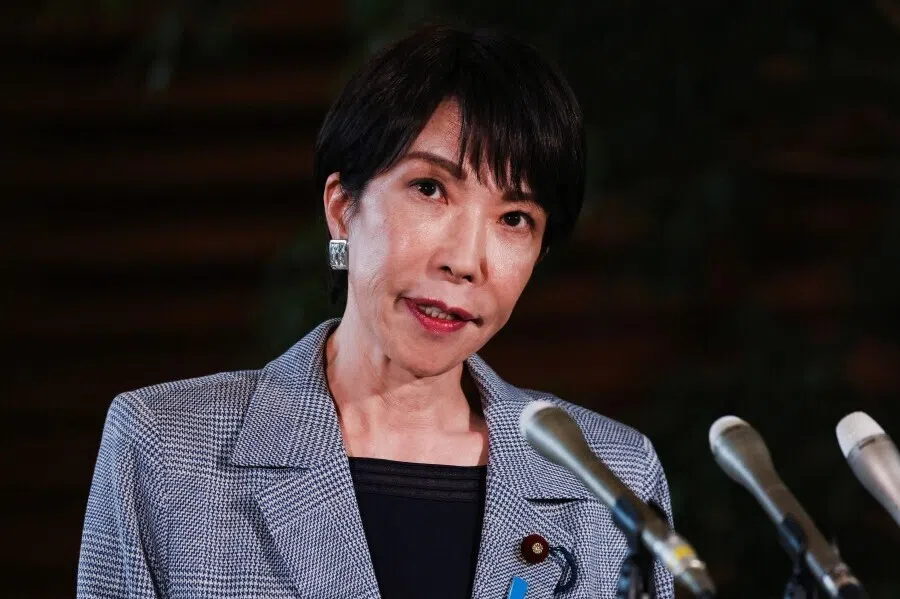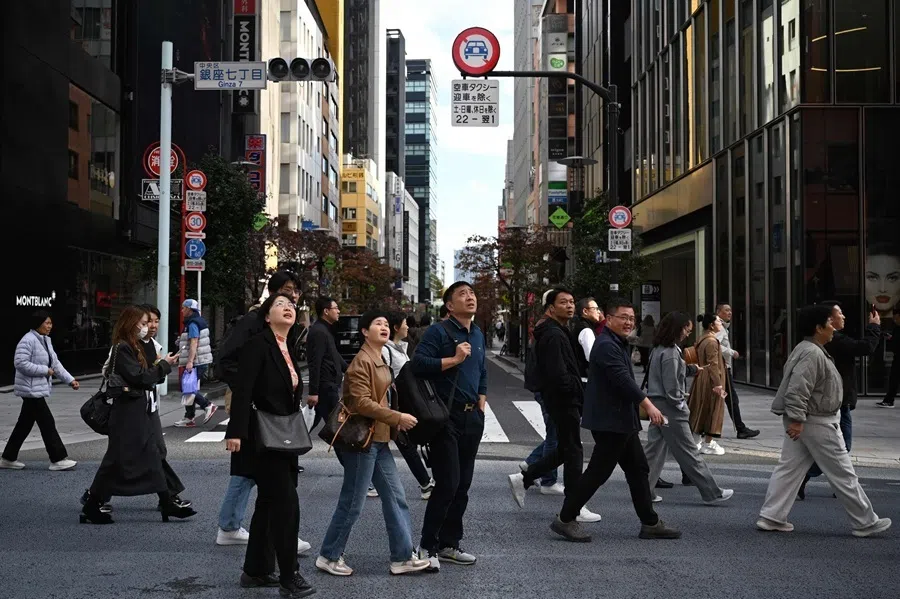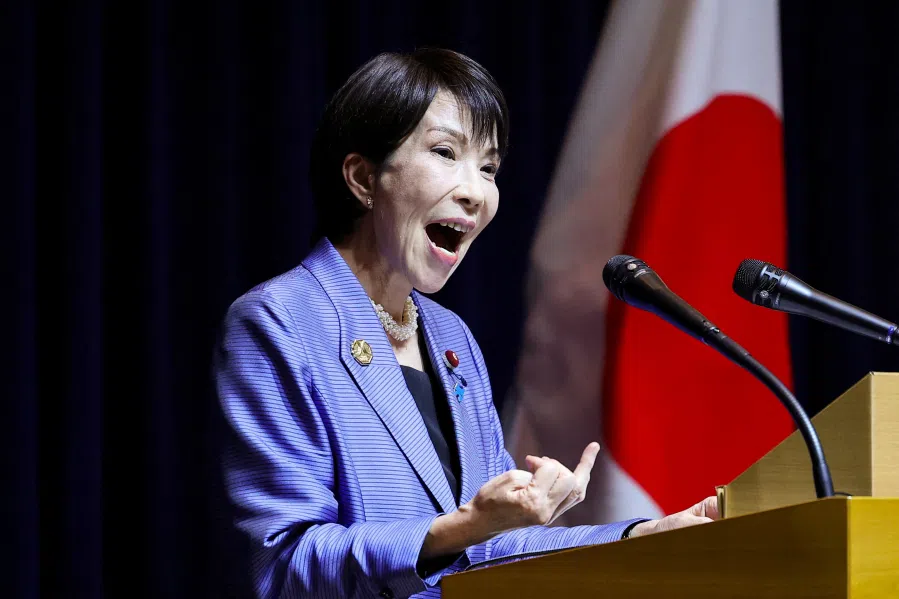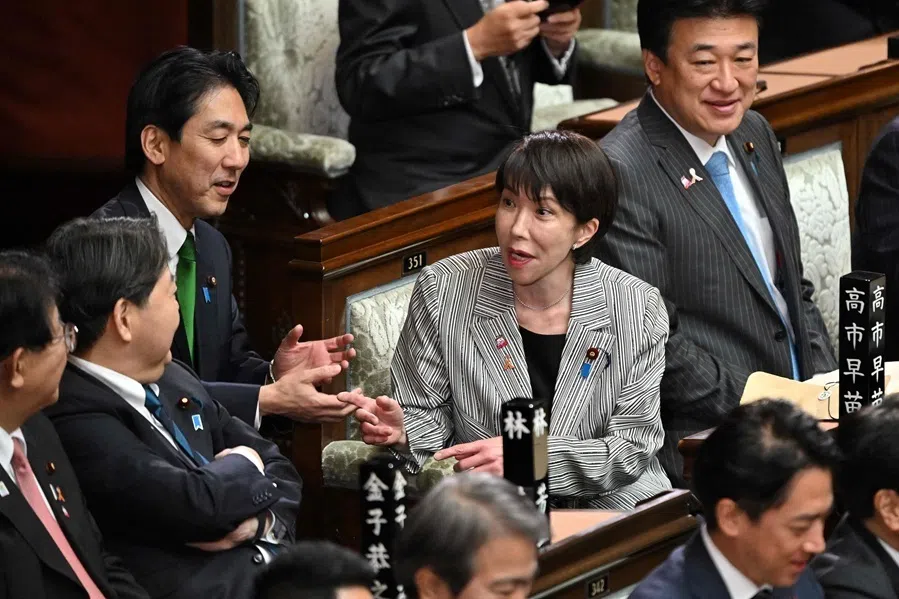How Putin became trapped by his own authoritarianism
Russian President Vladimir Putin's misjudgement of the Ukrainian situation, its people's resilience and his own military forces have led to a prolonged war. Economics professor Zhu Ying notes that Putin has been misguided by his beliefs, and his dictatorship over Russia has struck fear even in his top officials, leading to a circle of "yes men" that have shielded him from the realities of the war. Cracks are showing in this inner circle. How long more will Putin stay trapped in his ideology?
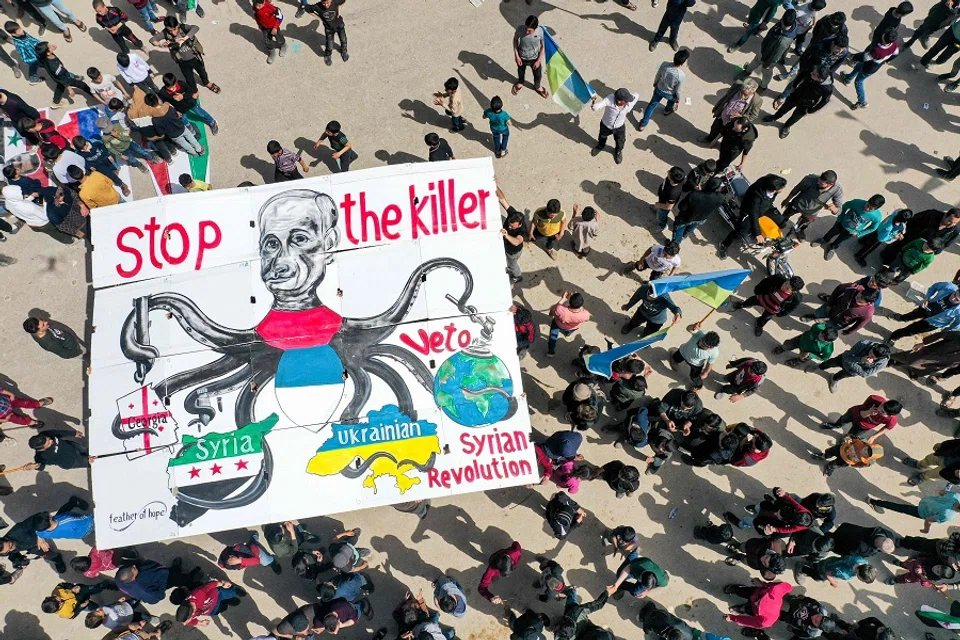
It has been two months since Russia invaded Ukraine and the underperformance of the Russian military forces has taken the world by surprise. There is much talk that Russian President Vladimir Putin misjudged the situation, that he underestimated the Ukrainians' resilience and the unity of the Western society and NATO, and that he overestimated the strength of the Russian army. His plan to capture Kyiv in two days fell through, prolonging the Russia-Ukraine war. Did Putin misjudge the situation because he was misled by his subordinates? After all, misinformation leads to misjudgement.
Why did Putin, who has been in power for over 20 years and is generally seen as shrewd and calculating, make such a strategic misjudgement? To find out the truth and draw insightful lessons from the string of events, one has to look beyond his misjudgement and analyse the reasons behind it, so that humanity will not repeat such a foolish mistake again.
A messiah complex
Firstly, Putin's beliefs are the ideological root of his misjudgement. Professor Ulrich Schmid of the University of St. Gallen's Department of Russian Culture and Society calls Putin's ideology a cocktail of Eurasianism, imperial consciousness and Eastern Orthodoxy.
Nikolai Trubetzkoy and Pyotr Savitsky, two of the most famous proponents of Eurasianism, coined the term "Eurasia".
Eurasianists believe that Bolshevism is a product of the West while Peter the Great's attempt at modernisation led to the collapse of Russia's Tsarist regime. Thus, Eurasianists want to build a Eurasian empire founded on Eastern Orthodoxy and modelled after the powerful Mongol Empire to counteract the Romano-Germanic culture.
Indeed, the Russians see Putin as a powerful driver of Russia's course of history, while Patriarch Kirill, head of the Russian Orthodox church, has called Putin's rule a "miracle of God".
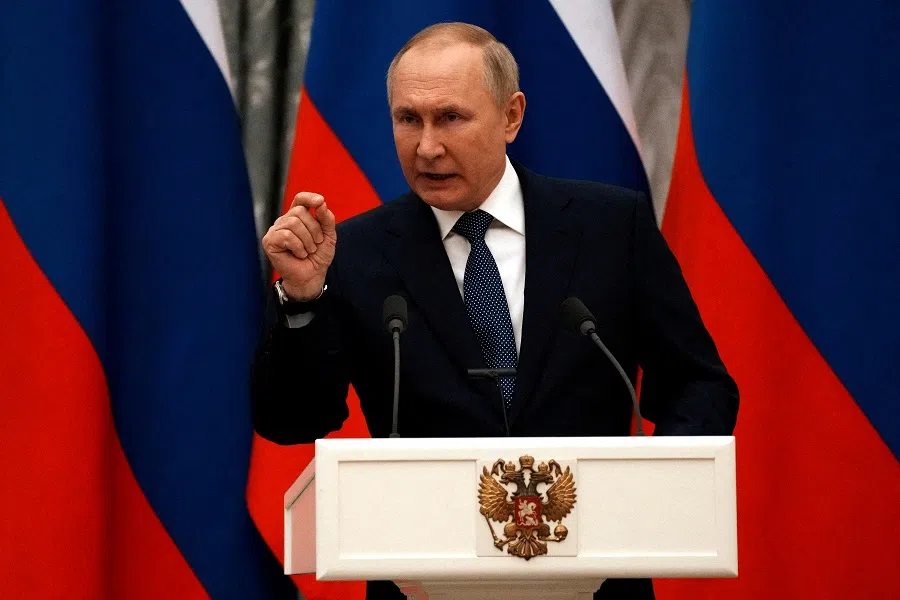
Putin's imperial consciousness stems from his interpretation of Russia's own history, with the core argument being "Russia's alleged 1,000-year statehood" that dates back to Kievan Rus and extends through the Grand Principality of Moscow, the Russian Empire and the Soviet Union to the present-day Russian Federation.
As Putin is also a staunch follower of the Eastern Orthodox Church, his ideology is a combination of the three concepts and a product of the Russian nation. Led by Russian values, the Russians will consciously and willingly bear their cross for the religious concern for all mankind. This is Russia's messiah complex.
The Russians also believe that Moscow is the "third Rome"; they have been chosen by God and should shoulder the sacred mission of the third Rome. Russia's messiah complex and its concept of a third Rome are two sides of the same coin. This perception and obsession have profoundly influenced Russian politics and driven the course of its own history, which is at odds with Western civilisation.
Indeed, the Russians see Putin as a powerful driver of Russia's course of history, while Patriarch Kirill, head of the Russian Orthodox church, has called Putin's rule a "miracle of God". Thus, the world can now see that Putin is embracing a patriotic plan aimed at restoring what he calls a "historic Russia" - the combination of Belarus, Ukraine and present-day Russia. The world can also see a surge in nationalist sentiments in Russia - Russia needs Putin and Putin's ambitions have in turn pushed Russian nationalism to new heights.
[Putin] believes that the election of Donald Trump as US president, the social chaos following Trump's failed re-election campaign, and Britain's exit from the European Union are evidence of the West's decline.
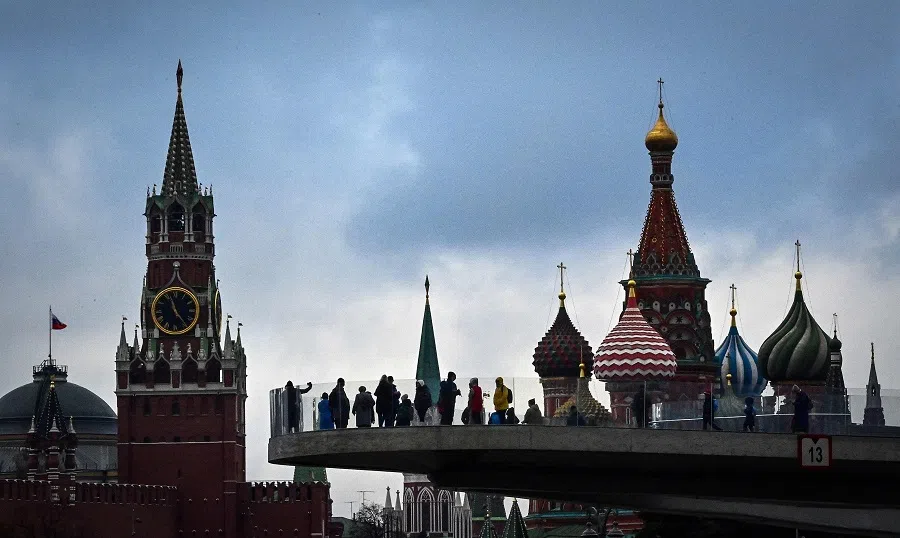
For this reason, Putin hates the West; opposes the culture of US-style globalisation, liberalism and individualism; and rejects universal values and Western democracy. Putin thinks that Western countries are already on the decline, brought about by their weakness, fragmentation, decadence, indulgence in personal consumption and promiscuity, internal division and ideological polarisation. He believes that the election of Donald Trump as US president, the social chaos following Trump's failed re-election campaign, and Britain's exit from the European Union are evidence of the West's decline. Since Putin firmly believes that the West is crumbling, he must choose to invade Ukraine to make Russia great again.
Putin also believes that the West took advantage of Russia's weakness and brought NATO's expansion closer to Russia's borders. But the situation today is just the opposite - the West is at a disadvantage and authoritarianism is gaining ground around the world. Going into 2022, former German chancellor Angela Merkel - the only Western leader that Putin takes seriously - has left office. Putin believes that the time has come for Russia to avenge the humiliation it suffered in the 1990s. He also thought that the Western countries would merely look on when Russia invaded Ukraine.
At the same time, Putin has accused Ukraine of rampant corruption and committing genocide. He says that it is a country that "never had a tradition of genuine statehood" and was "entirely created by Russia, more precisely, Bolshevik, communist Russia". Putin asserted that modern Ukraine was created by "dividing, tearing from [Russia's] pieces of [Russia's] own historical territory", and that Russia's invasion of Ukraine is part of a "decommunisation" process. Putin's invasion of Ukraine is also supported by the majority of Russians with a messiah complex.
Clearly, living in today's era of information explosion, Putin's distortion of history and reality means that he can only underestimate his enemies and overestimate himself, and treat the West with hostility and contempt.
Because Putin is hostile towards the West, he naturally sees the events in neighbouring countries as the result of behind-the-scenes manipulation by hostile Western forces. He refuses to believe that the series of protests that erupted in Georgia (2003), Ukraine (2004-2005), Kyrgyzstan (2005) and Kazakhstan (2022) were true reflections of popular will because each protest was aimed at eliminating corrupt and unpopular pro-Moscow governments. Putin believes that Western imperialism is infiltrating the territories that historically and rightfully belong to Russia.
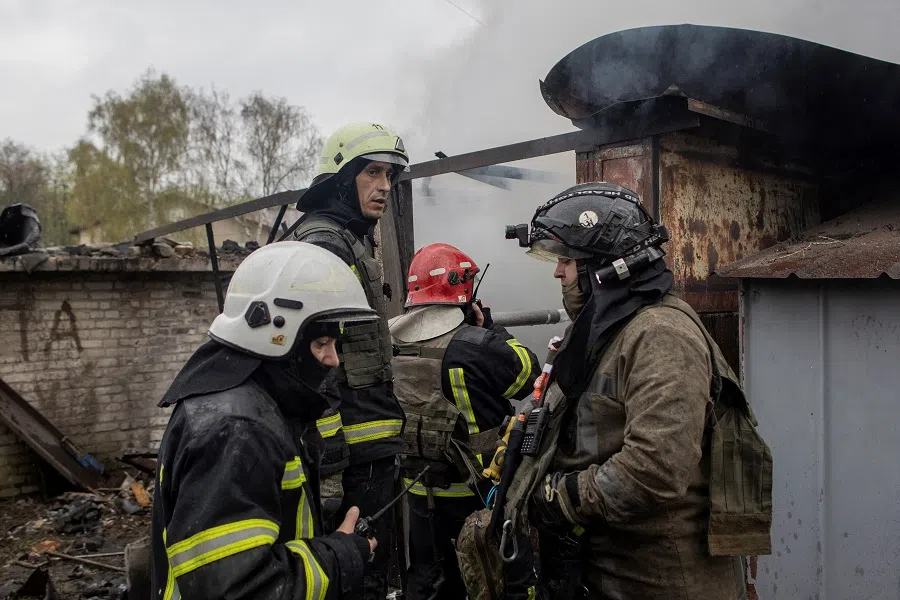
Clearly, living in today's era of information explosion, Putin's distortion of history and reality means that he can only underestimate his enemies and overestimate himself, and treat the West with hostility and contempt. In this sense, it is logical that he misjudged the situation. The problem now is, does Putin understand the true state of his own military? This needs to be analysed in the context of Putin's return to authoritarianism.
Fatal flaw of authoritarianism
Secondly, Putin's return to authoritarianism has caused him to fall into the dictator trap. Former US national security adviser Zbigniew Brzezinski once famously said, "Russia can be either an empire or a democracy, but it cannot be both."
Russia's national emblem consists of a double-headed eagle that looks towards both the East and the West. History has pulled Russia in opposite directions - one towards democracy and the other towards autocracy. Meanwhile, Russia's political tradition is an authoritarian one, with a long history of Tsarist autocracy.
Former Russian President Boris Yeltsin failed to achieve Russia's transition to democracy, while Putin's imperial dream brought Russia back to authoritarianism. In fact, his power has reached its peak to become a dictatorship.
Power is everything and the only thing that gives officials in the system a sense of existence.
It is proven that power is his magnet and with that, he controls the whole country. Renowned historian of fascism Timothy Snyder once said, "Having toyed with an authoritarian rule-of-law state, he simply become the oligarch-in-chief and turned the state into the enforcer mechanism of his oligarchical clan."
In authoritarian countries, decisions are often made in a small, closed circle. Information flow is distorted by power, which comes monolithically from the top. Power is everything and the only thing that gives officials in the system a sense of existence. Everyone could only obey the commands of their superiors and report what the latter wishes to hear in order to curry their favour; nobody is willing to report the ugly truths that the higher-ups do not want to hear. As a result, the bad guys eliminate the good guys and what emerges are selfish, power-hungry and greedy villains. This is the fatal flaw of authoritarianism.
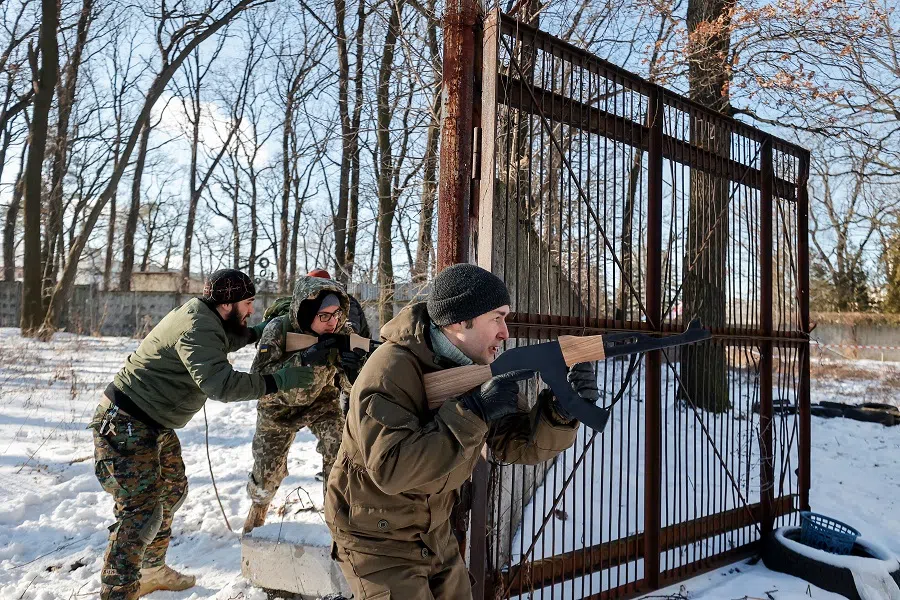
Mikhail Zygar's book All the Kremlin's Men: Inside the Court of Vladimir Putin published in 2016 describes the so-called "collective Putin" phenomenon, where Putin's entourage would always try to eagerly anticipate what the president would want. They would tell Putin exactly what he wanted to hear and strived to convince him that he is the only person who can save Russia.
This phenomenon still exists, and the whole world saw it on the eve of Russia's invasion of Ukraine, when Putin summoned his top officials one by one and inquired about their views on the coming war. They knew what their task was and submissively tried to convey the president's thoughts in their own words. The same thing happened when Putin publicly humiliated Sergey Naryshkin, the head of the Foreign Intelligence Service. Regardless of what Putin said, Naryshkin could only nod along in fear.
... [Putin] has grown to believe the lies fabricated by his own national public opinion institutions. These lies are what he craves for.
The outcome is Russia's shocking intelligence failures in Ukraine. Putin does not know what the Ukrainians want, how they plan to fight, nor how corruption has destroyed his own armed forces. All signs point to the fact that because he trusted the propaganda about Russia's military power and Ukraine's desire to submit to Russian rule, he has grown to believe the lies fabricated by his own national public opinion institutions. These lies are what he craves for.
Misinformation through layers of transmission
The final report of the Russian Federal Security Service (FSB) on the situation in Ukraine before the start of the war was partly why the Russian army suffered a disastrous defeat. The FSB was completely wrong about the Ukrainians' will to resist Russian forces and the extent to which Russia was prepared for the resistance. While the FSB might have gathered information in a professional manner, those who conveyed the information to Putin modified it into what the president wanted to hear following layers and layers of information transmission.
Now, Putin is unhappy with the intelligence officers who told him that the Ukrainians would welcome Russia's invasion. He has put Sergei Beseda, head of the Fifth Service of the FSB in Lefortovo Prison, while Beseda's deputy Anatoly Bolyukh is understood to be under house arrest. Another 150 intelligence agents from the Fifth Service were also arrested.
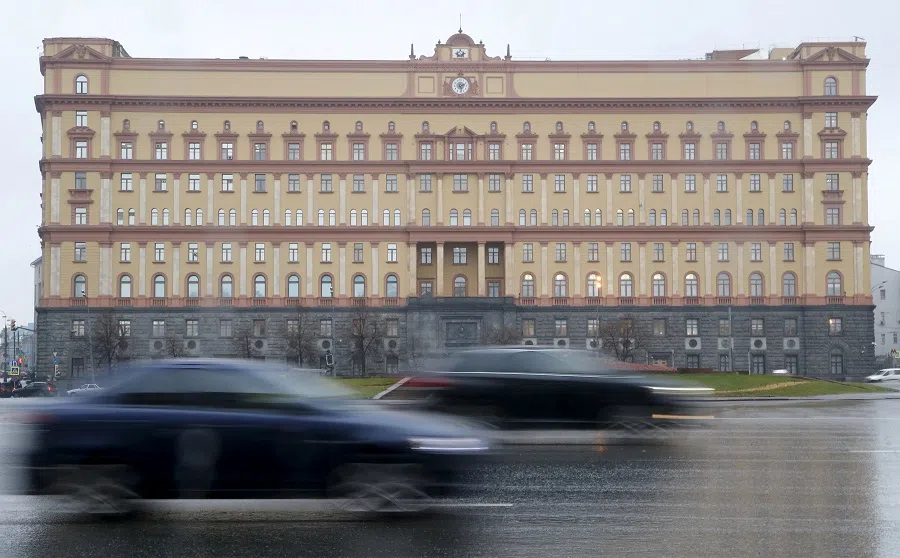
Putin is furious that the billions of dollars intended for bribing the Ukrainian army, intelligence agencies and politicians have been embezzled by Beseda and Fifth Service agents. Before the Russian army launched the invasion, the military learned that the Ukrainian forces had all been bribed to agree to Russia's invasion and would not resist when the time came. Beseda and the others were dumbfounded to learn that Putin really wanted to push ahead with the invasion. To save their lives and secure their money, they devised a plan to let the US know about Russia's invasion plan, hoping that US pressure would force Putin to change his mind. Beseda contacted the US's Central Intelligence Agency and revealed Putin's plan, which led US President Joe Biden to declare that Russia will definitely invade Ukraine. Such a far-fetched tale could only come from an authoritarian country.
The aforementioned analyses highlight that Putin has misled himself - inevitably caused by his ideology and return to authoritarianism. Furthermore, Putin is unable to get out of the trap of institutional misinformation and deception - this is the historical destiny of false beliefs and authoritarianism.
Related: Lessons from Russia-Ukraine war: The UN of 1945 must be reformed | China must reflect on its third-party position in the Russia-Ukraine war | An ostracised Russia's descent into war and lessons for China | Emperor Putin's missed opportunities and delusions | How the Ukraine war will reshape the EU's approach to China and Indo-Pacific | When a country needs to choose between realism and idealism


